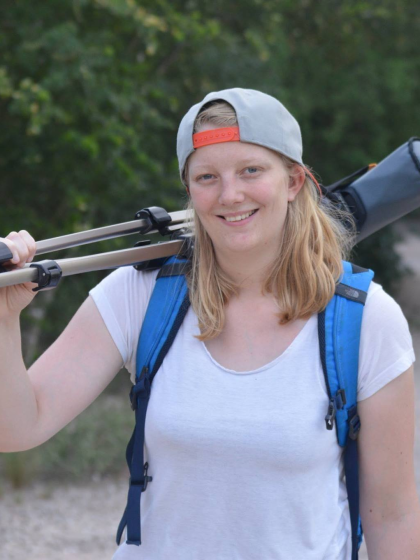M.J. (Mirjam) Borger, MSc

Research interests
PhD thesis: How to prime your offspring - Putting behavioural ecology to the test (2024)
Natural selection favours traits that enhance the reproductive success of individuals. From an evolutionary perspective, reproductive success does not only depend on the number of offspring produced, but also on their condition, sex, and behaviour. In this thesis, I study the choices parents make to produce ‘the best’ offspring they can. To this end, I use various bird study systems and computer simulations. The first part of my thesis studies reproductive behaviour in the context of cooperative breeding, a breeding system where individuals help their parents to raise young instead of reproducing themselves. Under which circumstances should individuals forgo one's own reproduction in favour of the enhanced reproduction of others? Does cooperative breeding enhance the survival prospects of populations that live under harsh conditions? Does cooperative breeding affect the types (e.g. sons and daughters) of offspring produced? Next, this thesis discusses general questions regarding reproduction and natural selection. How should the ‘reproductive value’ of individuals be estimated in empirical systems? How can we infer the genetic basis of behaviour from empirical data? In a third part, I discuss potential mechanisms by which parents could affect the state of their offspring. I discuss how to disentangle early-life effects of the egg from parental effects after hatching in the nest, and investigate if birds can manipulate their offspring sex ratio based on glucose (a cue for body condition). I conclude that the assumptions underlying the study of the evolution of behaviour should be considered critically, as this could change conclusions dramatically.
